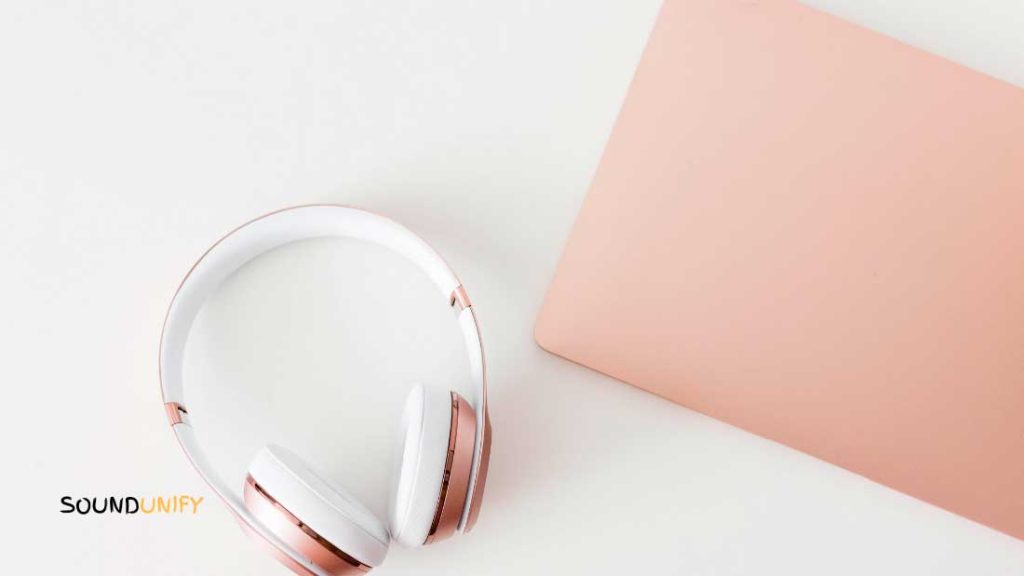People still use wired headphones primarily for two reasons: they often provide superior sound quality and they don't require charging, unlike wireless alternatives.
The world is becoming increasingly wireless, so why do some swear by wired headphones? It’s a good question with an interesting answer.
For those who have jumped to wireless audio technology, it cannot be easy to understand why anyone would choose wired headphones. But like all technologies, there are pros and cons to both sides.
This article will explore why some people still use wired headphones over their wireless counterparts.
We’ll also look at the advantages and disadvantages of wired headphones. So you can make an informed decision about which is best for you.
Why Do People Still Use Wired Headphones?

Wired headphones are still popular because they often have better sound quality than wireless headphones. Wired headphones also do not run into connection problems or have consistent issues with audio reliability.
They are still the preferred choice for audio professionals who require accurate sound quality. There are many reasons why people still choose to use wired headphones.
Advantages of Wired Headphones

Wired headphones are still popular among music lovers and audiophiles, despite the emergence of wireless models in the market. They offer several advantages that appeal to users, such as improved sound quality, reliable connection, and low latency.
1. Better Sound Quality
Wired headphones have been around for decades and remain popular today because of their superior sound quality, unlike wireless headphones. That relies on digital audio transmission over low-power radio signals.
They use a physical connection to deliver high-fidelity audio directly from the source device. This means wired headphones can reproduce a more accurate representation of the original sound recording than wireless models.
The direct connection also eliminates noise interference from other signals, providing a more reliable experience and eliminating dropouts or audio artifacts caused by signal degradation.
2. More Reliable Connection
Wired headphones provide more reliable connections than wireless options. They ensure that there will be no interruptions in sound quality or skips during playback.
They use cables that connect to the device, such as a smartphone or laptop, which directly connects the two and eliminates any potential interference.
The connection is more secure since the cable is connected directly to the source and cannot be interfered with by other devices.
3. No Need To Charge
Many people use wired headphones because they don’t need to be charged like wireless headphones.
This is a beneficial feature for headphones users, as it dispenses with the need to continually locate a charging cable or search for an electrical outlet.
4. Lower Latency
Wired headphones provide a low-latency connection, essential for audio activities that require precise timing, such as gaming, music production, and watching movies.
With wired headphones, sound arrives at the listener’s ears almost instantly with no noticeable delay.
This is because they don’t need to rely on wireless technology to establish a connection between the device and the headphones. There is virtually no lag time due to the wires’ direct connection.
As a result, users can enjoy an uninterrupted listening experience with minimal latency.
Personal Preferences

Many people still prefer to use wired headphones for their music-listening needs, despite the rise of wireless options. Some may choose the sound quality that wired headphones deliver.
Wired headsets produce more precise sound by eliminating any possibility of interference from other signals or devices, meaning the listener gets an uncompromised listening experience.
1. Comfort and Fit
Comfort and fit are two of the most important factors when selecting a pair of headphones, as they will determine how well you can wear them. And how long you can comfortably listen to music or watch movies without interruption.
The headphones have the advantage of being adjusted to fit your head perfectly, allowing for maximum comfort over long periods.
2. Style and Fashion
Style and fashion play an important role when choosing a pair of headphones. Wired headphones can come in various designs and colors, from classic black to bright neon, allowing users to find the perfect style that fits their unique looks.
This is especially true for younger generations who value aesthetics and personal expression through fashion.
3. Cost
Cost is a major factor for many people looking to buy headphones. Wired headphones are typically much less expensive than wireless models.
It can be found for as little as $10 or less if purchased in bulk. This makes them an attractive option for those on a budget or simply looking to save money.
Common Use Cases Of Wired Headphones

The headphones can use for many different activities. Most notably, wired headphones are great for:
- Listening to music
- Watching movies
- Gaming
- Digital audio production
- Attending online lectures
- Communicating with friends and family
1. Professional Audio Production With Wires
Wired headphones are preferred for professional audio production due to their superior sound quality and reliability.
A wired connection sends sound waves directly from the audio source to the headphones without interference or latency. This makes them ideal for music production and mixing as they allow precise sound manipulation.
Furthermore, you can also use wired headphones with musical instruments such as guitars and keyboards. This allows for more realistic sound reproduction than wireless headphones.
2. Gaming With Wired Headphones
Gaming enthusiasts still favor wired headphones for their top-notch audio, cost-effectiveness, and robustness. Wired headphones allow you to enjoy immersive gaming experiences with crystal-clear audio.
They provide a realistic and immersive experience and eliminate potential distractions.
They also provide improved latency, making them ideal for competitive gaming when every second counts. Wired headphones are also more reliable than wireless options.
So gamers don’t have to worry about signal drops or other connectivity issues that can ruin their gaming experience.
3. Exercise And Sports With Wired Headphones
Wired headphones have been used for exercise and sports for years because they offer superior sound quality and greater comfort than their wireless counterparts. Many athletes prefer them due to their reliable connection, lack of latency, and minimal sound interference.
For example, long-distance runners often listen to music or podcasts during training sessions to stay motivated and entertained. Wired headphones that are lightweight, comfortable, and sweatproof are ideal for these types of activities.
They also provide a secure fit that stays in place no matter how rigorous the activity is.
4. Public Transportation With Wired Headphones
They are still the preferred choice for many when using them for public transportation. Whether commuting on a train, plane, or bus, having a wired pair of headphones is essential to enjoy your music and podcasts without disturbing other passengers.
One of the main advantages wired headphones offer when used in public transportation is that they don’t require battery power. This means they don’t need to be recharged and won’t die out on you during your journey.
Why Do Some People Not Use Wired Headphones?

Wired headphones remain popular among music lovers and audiophiles for many reasons, including their superior sound quality and reliable connection. However, some people refrain from using them due to certain drawbacks.
1. Tangling Cables
One primary issue preventing people from using wired headphones is their tendency to tangle easily. This can be particularly annoying when trying to quickly find and use a set of headphones in a hurry.
When it comes to tangling, not all cables are created equal. Some wires are prone to tangling more than others due to their construction or materials used.
For instance, rubber-coated wires tend to become tangled more often than plastic or nylon-coated wires, as they have more points at which they can rub against each other.
Similarly, thicker and longer headphone wires are more susceptible to becoming knotted up than thinner and shorter ones.
2. Limited Mobility
Compared to wireless counterparts, wired headphones are much more confined in terms of how far they can travel with you. With wired headphones, you are limited to the length of the cable. This means if you want to move around while listening to music or talking on the phone.
You must constantly adjust your position to avoid tangling or pulling the cables out of your device. As such, it could be better for activities where you may be moving around or require more freedom of movement.
3. Compatibility Issues
Most wired headphones are designed for specific audio devices, such as MP3 players, computers, and phones. If a user does not have an audio device compatible with the headphones, they cannot use them.
In addition, some audio devices require special adapters or cables to connect to sure wired headphones. For example, many smartphones need an adapter to connect to regular 3.5mm headphone jacks.
This means that users must ensure they have the necessary adapter to use their chosen set of wired headphones with their device.
4. Potential Damage to an Audio Device
While they provide excellent sound quality and a reliable connection, they can also cause potential damage to an audio device. When used regularly, the cable on wired headphones can become frayed or worn out.
Over time, this can lead to a loss of signal quality or even create static noise when listening to music. This is because the cable’s internal wiring has been weakened over time and can no longer conduct the signal as efficiently as before.
5. Lack of Features
Finally, it is worth noting that wired headphones typically lack many of the features offered by their wireless counterparts. This includes Bluetooth connectivity and active noise cancellation.
For instance, wired headphones cannot be paired with multiple devices like wireless models, making them less convenient when switching between devices. They also cannot be used to make or answer calls, as most wired headphones lack a microphone.
FAQ
Why Are Millennials Using Wired Headphones?
Millennials use wired headphones because they don’t need to be charged, provide a more reliable connection, and allow for more precise audio timing and low latency.
They are also typically more affordable than wireless models, making them an attractive option for those on a budget.
In addition, the cords provide a more secure fit that stays in place while running, working out, and doing other activities. Lastly, wired headphones come in various styles and colors, allowing users to express their style.
Why Are Wired Headphones Popular?
Wired headphones are popular because they offer better sound quality than wireless headphones and are more reliable due to fewer chances for interference from Bluetooth and other wireless signals. They are also generally more affordable than wireless headphones.
Why Are People Going Back to Wired Headphones?
People are going back to wired headphones for a few reasons.
First, since wireless technology has advanced, wired headphones can offer better sound quality than ever.
Second, people enjoy the simplicity and reliability of wired headphones since there is no risk of interference from Bluetooth or other wireless signals.
Finally, wired headphones are generally more affordable than their wireless counterparts.
Conclusion
Despite the many advantages of wireless headphones, some people still prefer to use wired headphones. These include superior sound quality, reliability and connection, low latency, and the ability to express personal style.
While wireless headphones are becoming more popular, some people still prefer wired headphones for various reasons. Ultimately, the choice between wireless and wired headphones is up to the individual and their needs.
James Dimento is a Chief-in-Editor of SoundUnify. He is a headphone enthusiast and creative writer passionate about audio technology. He has three years of experience writing about headphones and sound quality and is responsible for creating reviews and taking care of all administration.
